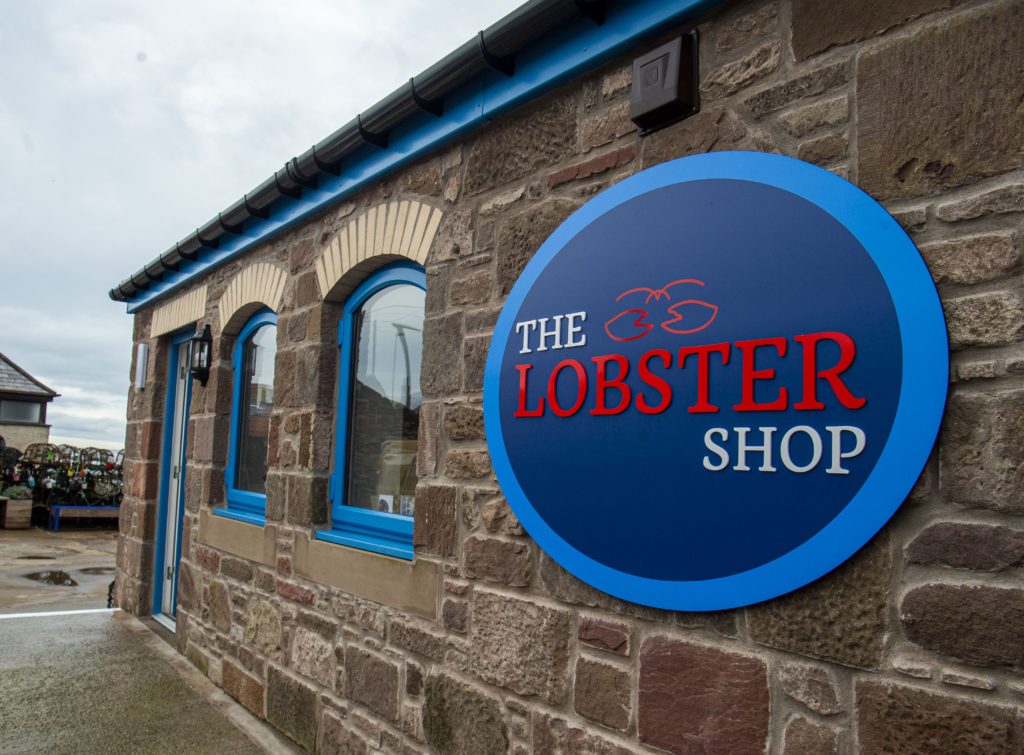Fishing runs in Loren McBay’s family, always based in the picturesque harbour of Johnshaven in Aberdeenshire.
Past generations caught herring, but Loren's grandfather Murray McBay founded the family's wholesale lobster business after he travelled down to London and discovered there was high demand at particular times of the year.
Although you can catch lobster all year round, they tend to lie dormant in winter, so they are mainly caught in spring and summer.
Instead, Murray came up with a clever storage idea. He bought two narrow islands on the west coast of Scotland which provided a natural holding facility to store lobsters.
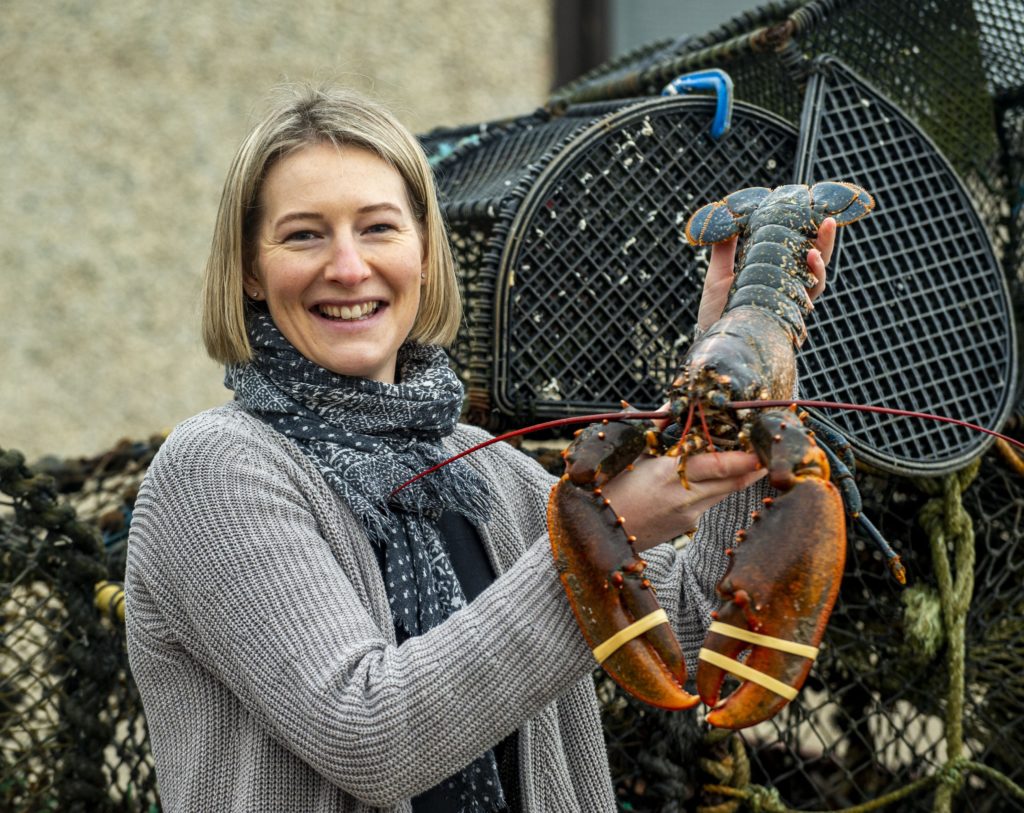
Loren said they have just hemmed in a bit of the sea. “We call it 'the pond'. We have added sluice gates and use natural sea water to keep it clean, we just add a bit more food so it is wild and as natural as you can get it."
This clever purchase meant they could buy and have a steady supply, all year round year and store them for busy times, like Christmas.
Currently the business is run by Loren's dad, Ivar, her mum Jackie and their three children; Loren, Ivar and Jason.
In the old days lobster pots were made from wood but now the creels are manufactured from steel; "so they can take a lot more battering at sea," explains Loren. Today the McBay family have a small boat and the brothers go out fishing more as a hobby.
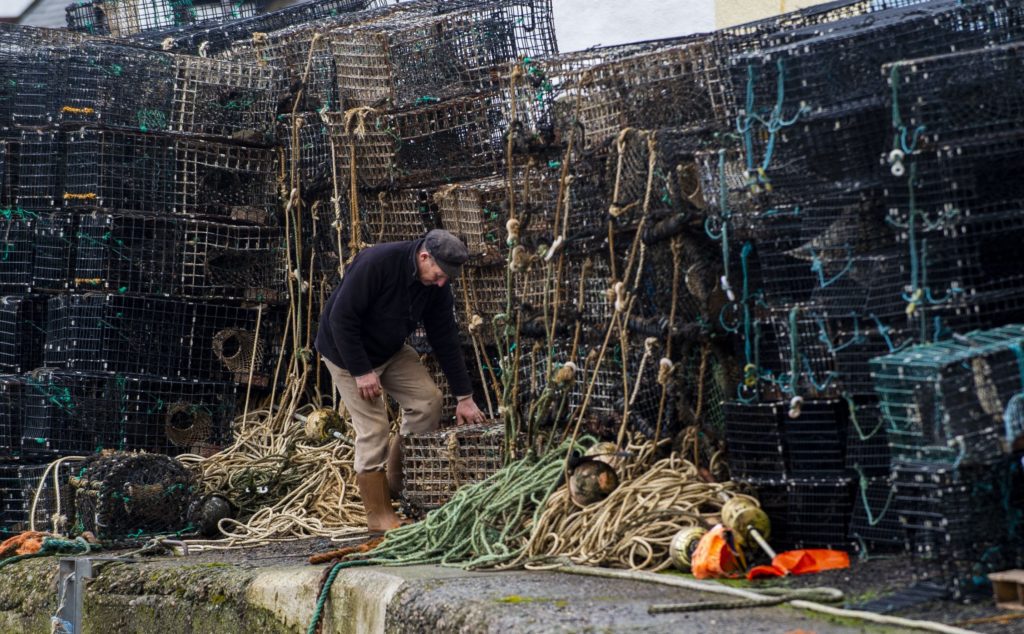
Today the McBay family, have a small boat and the brothers go out fishing more as a hobby.
It has been a tough time for everyone involved in Scottish seafood trade. The McBay wholesale operation sets a weekly price for the catch from the local boats, and it is then up to the fishermen if they will land to them or someone else who has a better price.
However, it is not always plain sailing, Loren explains larger companies, "can set prices, so the boats only land to them and miss out the merchants."
The family have seen a downturn in the wholesale arm of their business which has been halved due to the pandemic and Brexit. Loren stressed that fishing cannot be a free for all; "you can't just keep taking, it has to be sustainable."
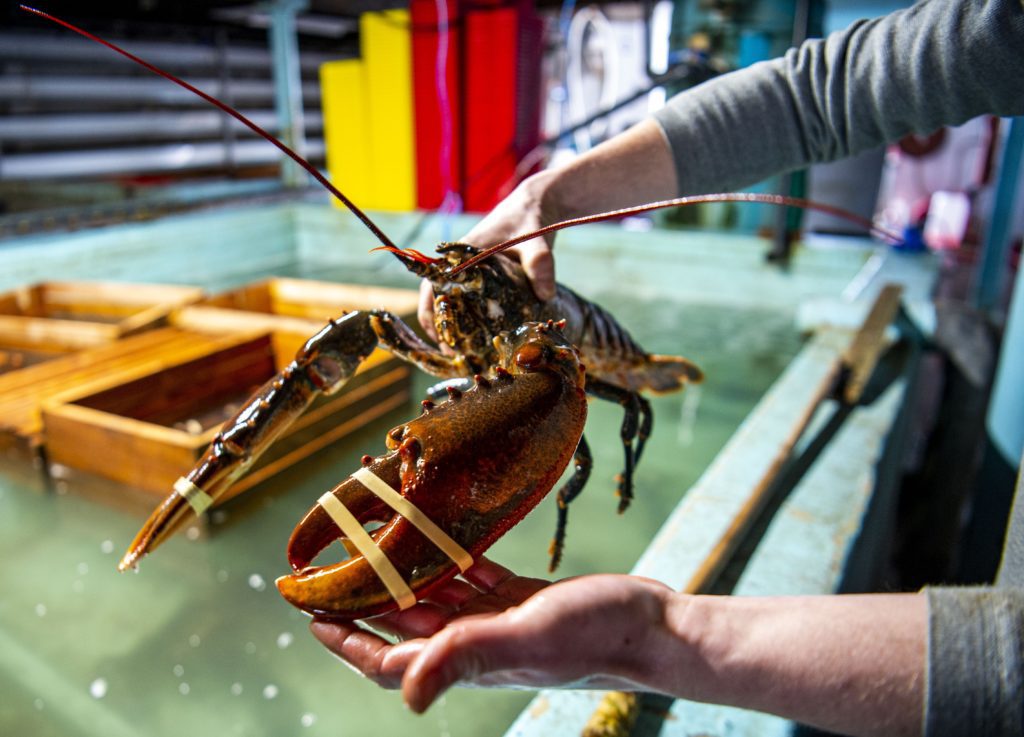
Brexit rule changes meant initially they couldn't be certain their live produce would be delayed heading abroad, and they couldn't afford to absorb the cost if a shipment went wrong. So for a while they had to pause exports.
She explains: "We don't know what we are going to do this year. We have to pay fishermen in advance for their catch, and try and guess how much the market will need later in the year."
However, they are back to exporting to France and Japan, and paperwork wise, "it is actually easily to get stuff to Japan than France."
Unfortunately, the lobsters don't get to fly first class, and Loren explains that they, "get bumped off a flight, if someone takes too much luggage."
They also supply a Paris wholesaler at the world famous Rungis market. He supplies ski resorts so Loren knows that lobsters from 'Johner' can end up in the best restaurants in resorts, such as Val-d'Isère. "Scottish people don't appreciate what quality seafood that we land here," she added.
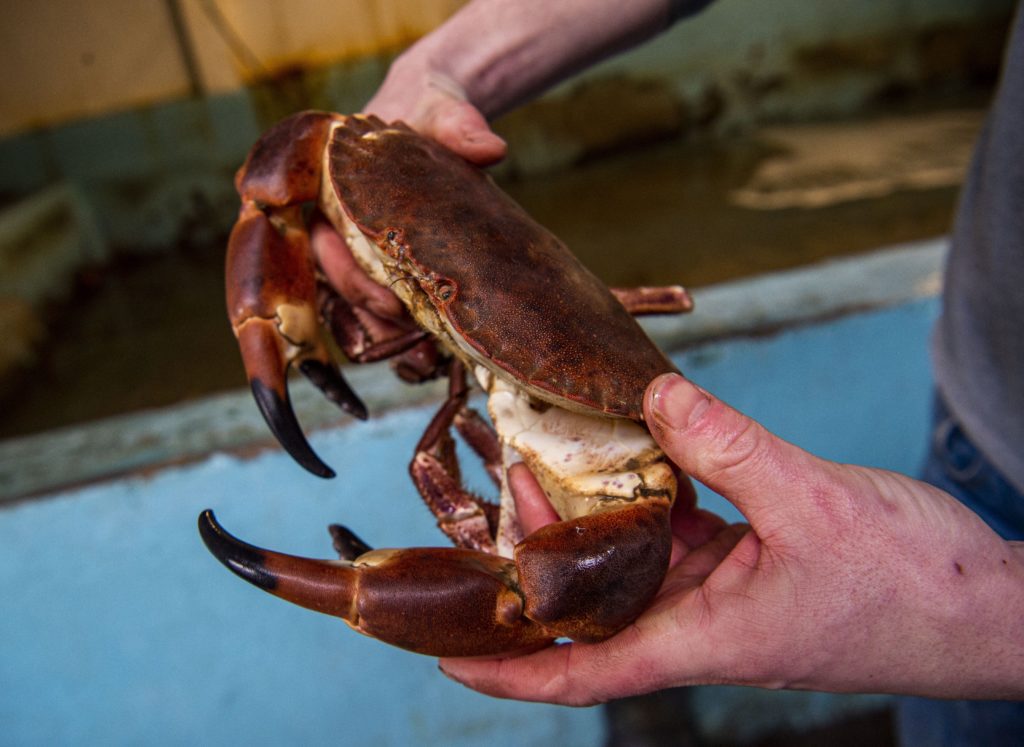
However, the family always had an inkling that there was a market locally for prepared and cooked seafood. “Visitors who came to the fish house would always say, if it was cooked I'd have liked to buy one.”
So the family applied for grant funding to set up a retail shop to help attract customers to Johnshaven.
Thankfully, Loren adds, "it has been a very well received" but admits that, "it was and still is a massive learning curve, but a good one."
Now both sides of the operation run in tandem. “They have to work together. You can't lose one at the expense of the other."
The entire family is involved, but she tells us that, "dad and mum are still the bosses,". Her middle brother, Ivar, is based in the kitchen, but helps when the wholesale side of the business becomes busy. Jason, her youngest brother has a more hands-on roll, fixing tanks and pumps, but he also works in the kitchen at peak periods.
While she works on the wholesale arm as well as running the shop.
Loren had moved away to Aberdeen to study zoology after school, but the call of home harbour saw her return. She said: "I went for a year and a half, but I was massively shy so I came back to help my nana in the office."
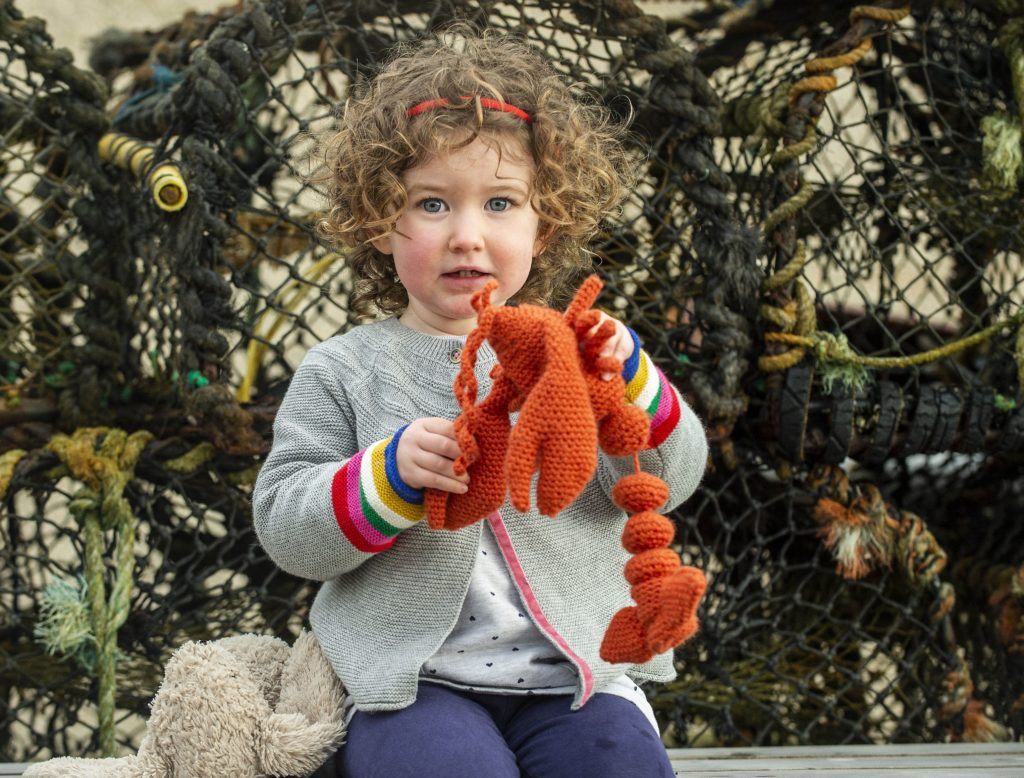
The next generation of the family is currently Loren's daughter Grace, who is two, and she is already being roped into the business. “She comes to meetings in the office but I'm lucky my brothers will help out with babysitting her and take her out for a walk to keep her amused."
She is a big fan of crustaceans. Loren explains: "She had lobster macaroni for her lunch one day, she was really chuffed; my pals were like what!"
Loren explains the benefits of working with family, "It is fun and there is so much banter and you can be completely honest, and most of the time it is the best thing.
"As a small business, you feel you are in the environment where it makes a difference to what is going out the door."
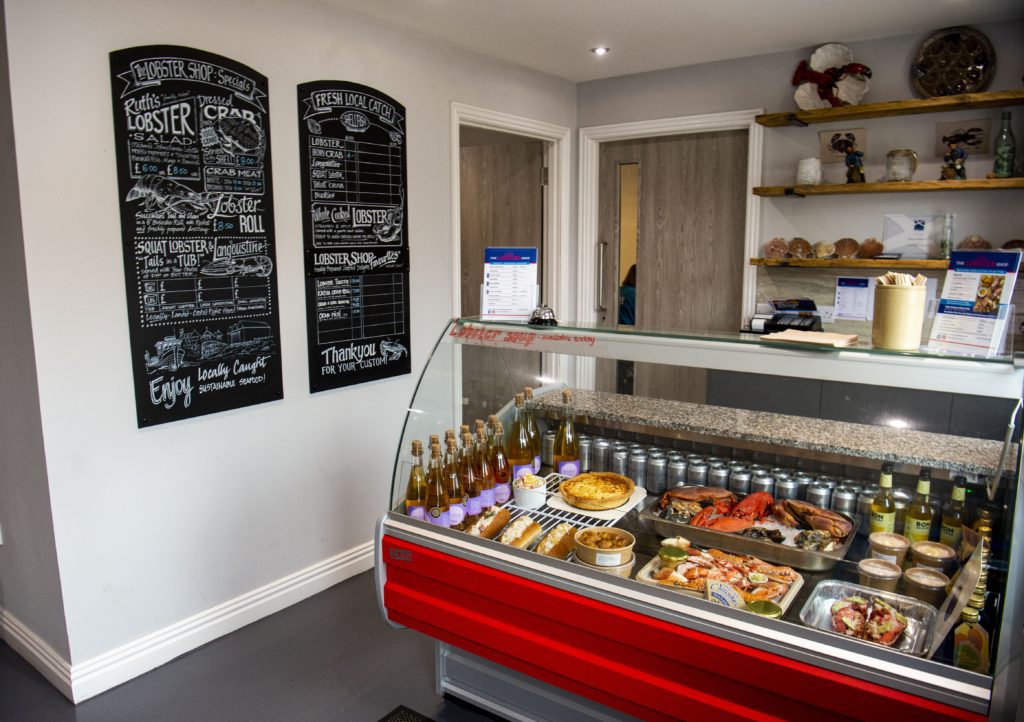
Opening the shop was very daunting initially but they are rewarded with instant feedback from the customers.
The menu menu features simple dishes you can buy to take home to cook, as well as crab rolls, soup and winter seafood platters, and a best seller is their granny's top secret lobster salad.
Sustainability is key to what they stock, for example the scallops are not dredged, as Loren explains: “I think people understand there is a slight increase in price, because it is the responsible thing to do."
The crab are caught locally, hand picked and prepared and then made into a deliciously fresh crab cakes. And she adds, "our dressed crab doesn't have added preservatives.
There isn't any pasteurised meat there is nothing to bulk it out, everything is just as is."
The aim is just to take the hassle out of preparation.
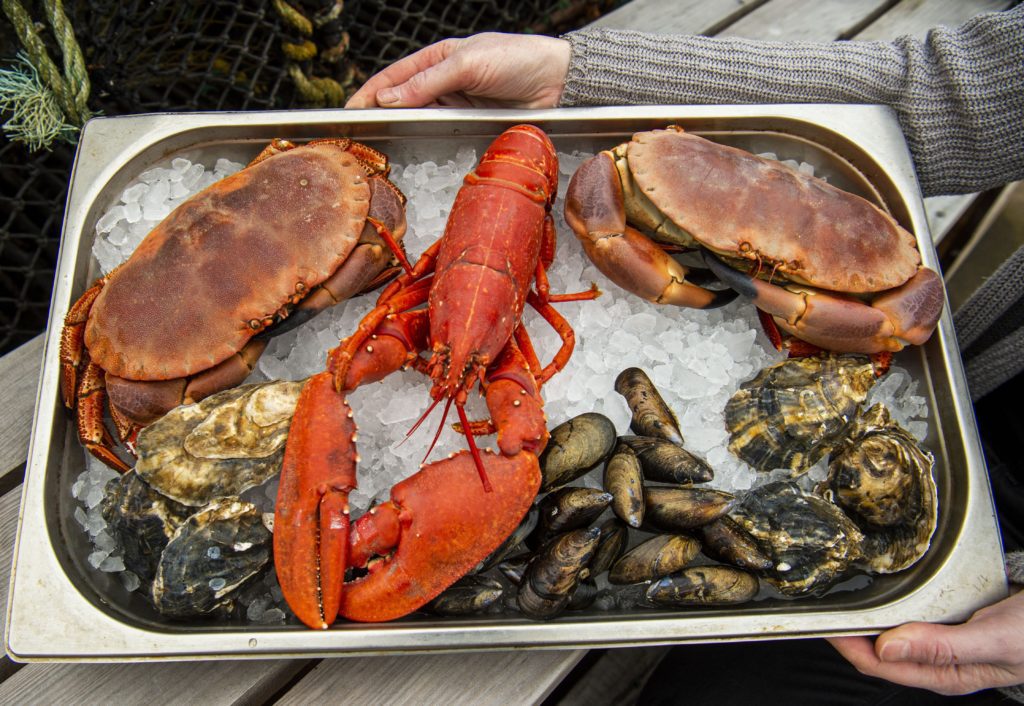
During the past year they have found that Scottish seafood sells, "because our seafood is such good quality, it doesn't need a lot to it."
The shop also supports other local businesses, including Bon Accord for drinks and bread from the Phoenix bakery.
Loren said: "The quality is so good and they are reliable and you can nip up if you are short. There were a lot of times in summer when we needed more."
They also stock Blackthorn sea salt, Mara seaweed seasoning and Seidear, from the wee Scottish Cider Company , and Kombucha from Fife.
They also sell rope grown mussels from Shetland because of their good farming methods. “The quality is still there. So it not just what makes a profit but what you are happy to sell. It has to have a conscience behind it as well."
They also source hand dived scallops, from the ethical shellfish company and seafood from David Lowrie in Fife; "because they have a similar ethos to us."
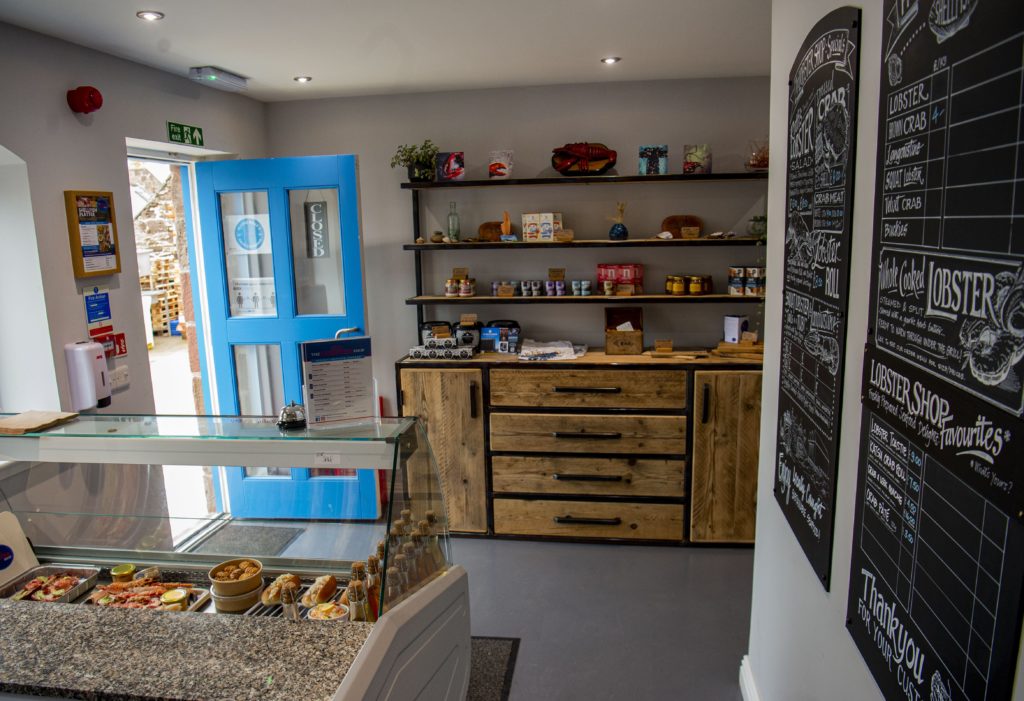
They hope to expand the kitchen soon to be able to supply summer demand. She tells us: "We sold out early everyday so we need to keep up with production, but everything is freshly prepared so you can't really do a lot of prep in advance."
And they hope to offer cooked lobster and skinny fries for customers to eat outside as an alternative to taking it home to cook, but to do that they will need to expand the shop and employ another pair of hands to help out.
The shop makes seafood accessible, it allows people who wouldn't normally try it to give it a go, Loren explains: "A simple lobster roll is easier to try than one that is beautifully prepared in a restaurant. It is exciting to see people from Scotland, enjoy what Scotland has to offer and being part of that."
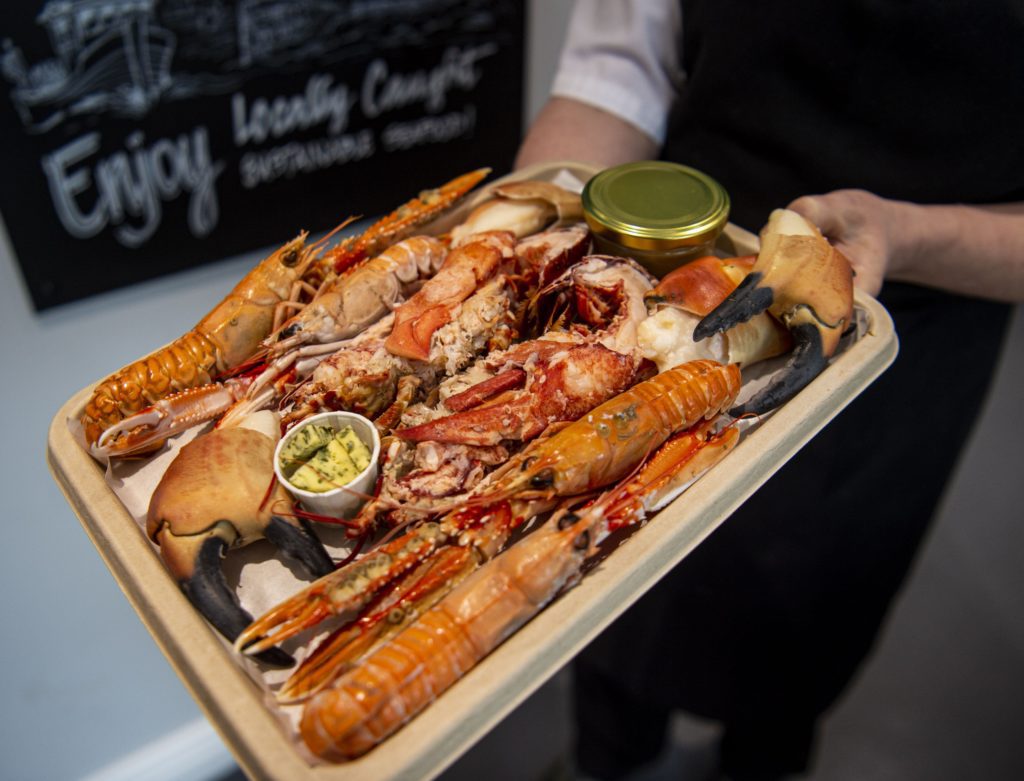
At the moment the shop only open Wednesday to Saturday with collection and local deliveries. They also have a stall at Stonehaven farmers’ market on the first Saturday of the month.
Johnshaven is a beautiful place to visit and Loren is delighted the shop is attracting tourists and locals alike. Just now winter trade often comes along the craggy coastline path in the form of walkers.
All tourist are all welcomed but Loren explains; " when the French customers come they just make your day, they say ‘this is amazing we wouldn't be able to buy this at home’. It makes you appreciate where you come from."
